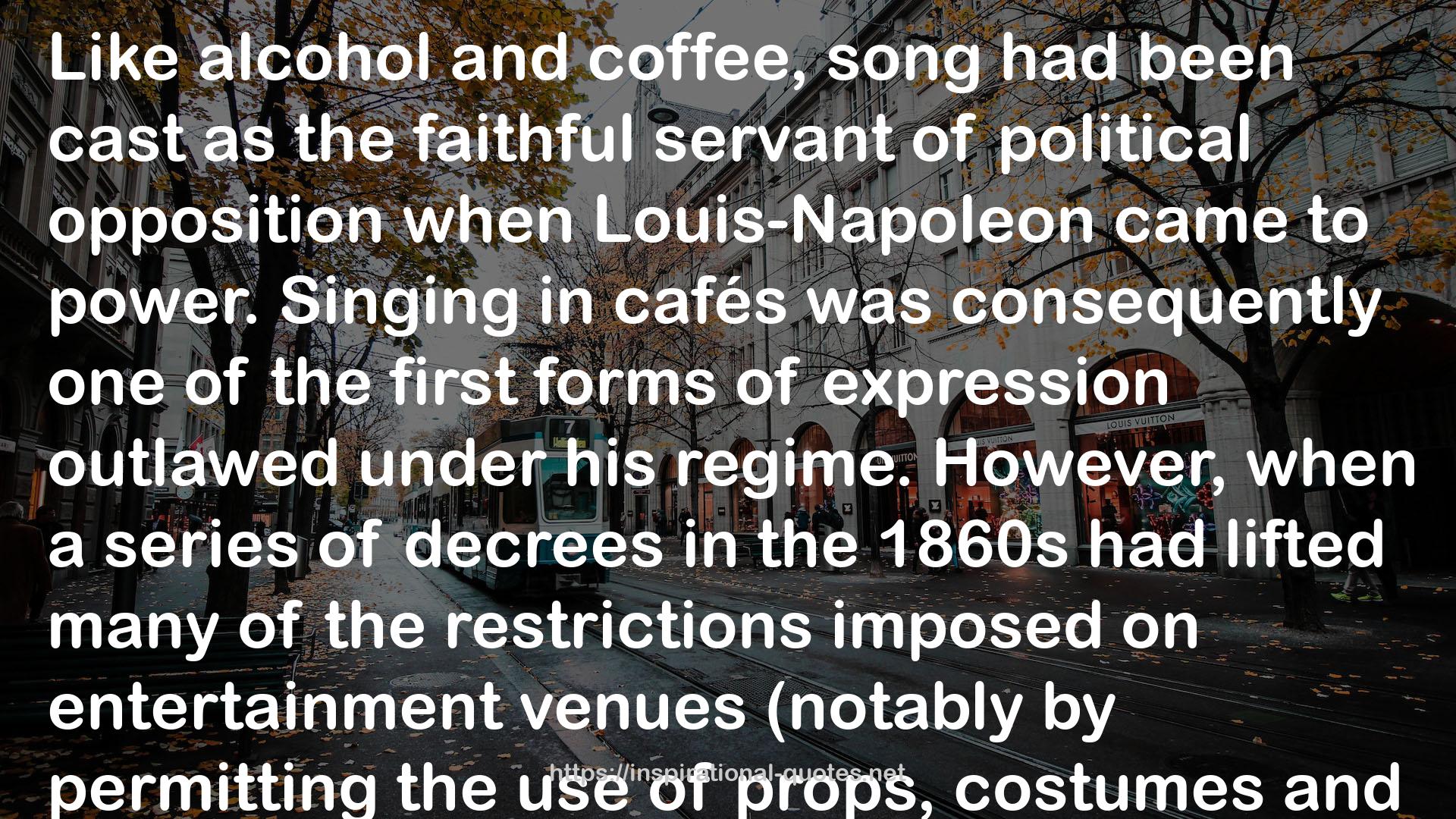" Like alcohol and coffee, song had been cast as the faithful servant of political opposition when Louis-Napoleon came to power. Singing in cafés was consequently one of the first forms of expression outlawed under his regime. However, when a series of decrees in the 1860s had lifted many of the restrictions imposed on entertainment venues (notably by permitting the use of props, costumes and music), café-concerts had begun to flourish. By the 1880s, there were over 200 such venues belting out hearty songs about working-class life across Paris. Along with the usual facilities of a café, café-concerts also offered a small indoor stage or a covered pavilion outside where singers, and sometimes acrobats and comedians, performed for an often raucous audience. Patrons paid more than they would in a standard café, either in the form of an entrance fee or through elevated drinks prices. But many judged the supplement worthwhile; the atmosphere was relaxed, the singers, though not first rate, were undeniably ‘of the people’, and unlike theatre-goers, audience members could also smoke. And as one guidebook writer exclaimed with surprise, ‘sometimes, one can actually hear quite good music. "
― Catherine Hewitt , Renoir's Dancer: The Secret Life of Suzanne Valadon
